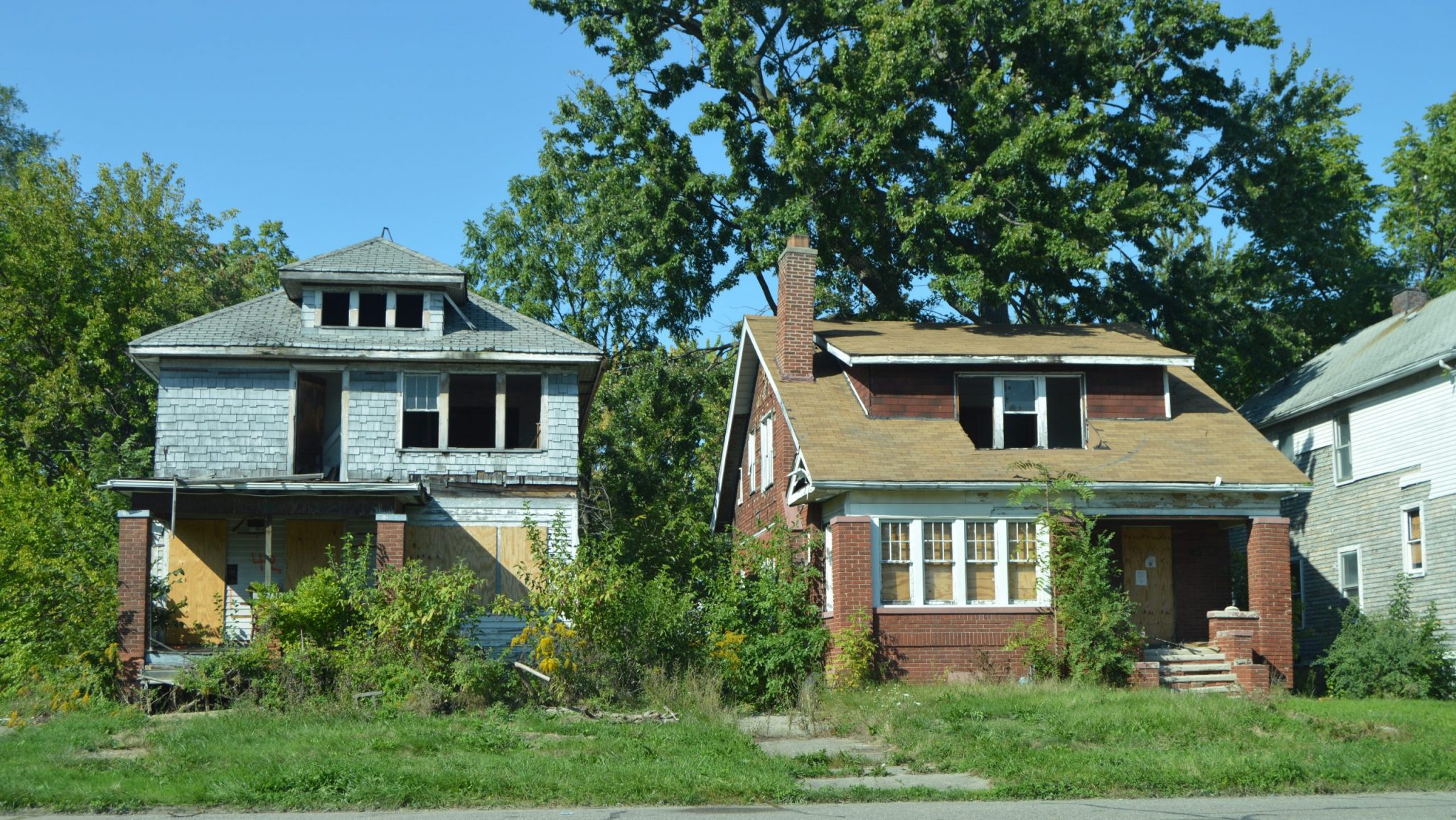Detroit Today: The case for a Land Value Tax in Detroit
The Land Value Tax Plan would change the way Detroit values houses and the land. But is it a good idea?

FILE — Blighted homes in Detroit.
Detroit Mayor Mike Duggan’s Land Value Tax Plan would change the way the city values houses and the land, with the goal of reducing homeowner property taxes while reducing blighted property in the city.
Duggan says the tax will force the hands of speculators, who are holding on to low-value land, hoping that it will increase someday, but who make minimal investments in improving that land or offering things like good housing or space for businesses.
A recent New York Times article took a deep dive into the land value tax system, comparing the real estate conundrum in Detroit to the one in Silicon Valley, Calif., where a lack of available land has driven prices through the roof. Detroit, in contrast, has an overabundance of undervalued land — held by both private interests and, importantly, by the government — that is in pretty low demand.
But can the same tool solve problems in both a high-supply/low-demand environment and a high-demand/low-supply one? Nick Allen, a PhD candidate studying city planning at MIT who suggested the solution to Mayor Duggan, and Alex Alsup, vice president of R&D at Regrid, a property data company, joined Detroit Today on Thursday to make a case for the plan.
Subscribe to Detroit Today on Apple Podcasts, Spotify, Google Podcasts, NPR.org or wherever you get your podcasts.
Guests:
Nick Allen is a doctoral candidate studying city planning at MIT. He says land value taxes — unlike sales or property tax — raise revenues without discouraging activity.
“If cities want to attract housing or workers or more activities…a land value tax is the least bad option to raise revenues while making sure those activities are happening,” said Allen.
Alex Alsup is the vice president of research and development at Regrid, a property data company. He says the tax reductions that homeowners will see under this proposal are not contingent on property speculators behaving any differently after implementation.
“The tax cut realized by homeowners is in no way contingent on speculators behaving differently,” said Alsup.
Listen to Detroit Today with host Stephen Henderson weekdays from 9-10 a.m. ET on 101.9 WDET and streaming on-demand.
Trusted, accurate, up-to-date.
WDET strives to make our journalism accessible to everyone. As a public media institution, we maintain our journalistic integrity through independent support from readers like you. If you value WDET as your source of news, music and conversation, please make a gift today.
